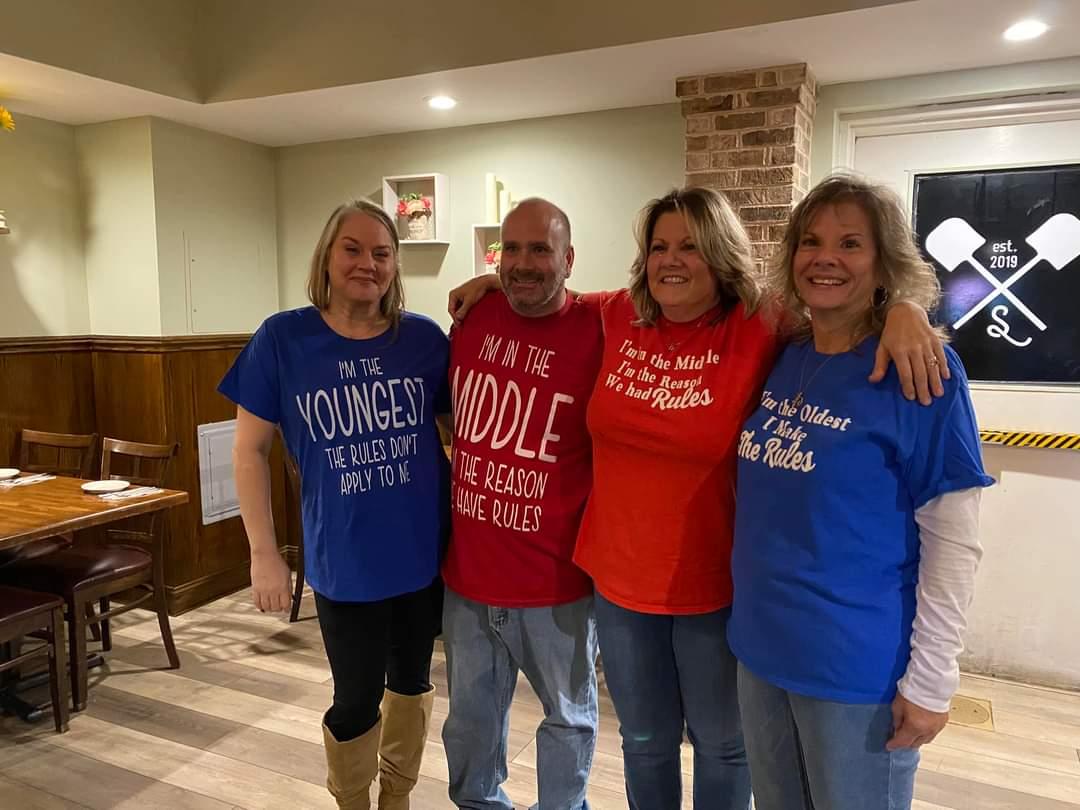For Mother’s Day this year we want to highlight Lisa, a public health nurse with a background in genetics, who shared what she learned using 23andMe as part of a little motherly advice for her two sons.
“I want to be able to help my kids understand their health risks and make good decisions,” Lisa said. “Knowledge is power.”

Be Aware
A lot of parents use the refrain — “make good decisions“ — when talking to their kids. But Lisa knows that good choices depend on good information, especially when it comes to your health.
The first step is to understand a bit about your family medical history, and using 23andMe could help by filling in the gaps in that history. In Lisa’s case, she knew that age-related macular degeneration (AMD), the most common cause of irreversible vision loss in older adults, ran in her family. Her mom was diagnosed with AMD in her 70s. So, it wasn’t a surprise when Lisa learned that her Age-Related Macular Degeneration Genetic Health Risk report* showed two variants associated with the condition.
Taking Action
Having an understanding about the impact of genetics on her health, inspired her to take steps to try and keep her eyes healthy. First, she talked to her husband, who is a doctor, about what actions to take. Among the steps one can take to potentially lower their risk, are things like not smoking, and including more leafy greens, citrus, nuts and whole grains in your diet. And simple things like wearing sunglasses to protect the eyes from harmful exposure to the sun. Lisa did all that and also took the time to talk to her sister, and then to her two sons.
“We’re looking out for them and making sure they see the seriousness of this disease,” Lisa said.
She wasn’t just offering up a bit of motherly wisdom, but sharing information that she knew could have lasting impact.
“I think it’s very empowering for them to have this knowledge and be able to pass it on to future generations,” she said.
*The 23andMe PGS test uses qualitative genotyping to detect select clinically relevant variants in the genomic DNA of adults from saliva for the purpose of reporting and interpreting genetic health risks. It is not intended to diagnose any disease. Your ethnicity may affect the relevance of each report and how your genetic health risk results are interpreted. Each genetic health risk report describes if a person has variants associated with a higher risk of developing a disease, but does not describe a person’s overall risk of developing the disease. The test is not intended to tell you anything about your current state of health, or to be used to make medical decisions, including whether or not you should take a medication, how much of a medication you should take, or determine any treatment. The Age-Related Macular Degeneration (AMD) genetic health risk report is indicated for reporting of the Y402H variant in the CFH gene, and the A69S in the ARMS2 gene and describes if a person has variants associated with an increased risk of developing AMD. The variants included in this report are common in many ethnicities but are best studied in people of European descent.




